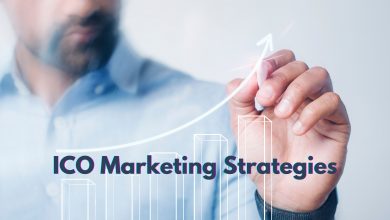Best Guide to Corporate Knowledge Management for Small Business Owners

It can be challenging to ensure your company runs smoothly. However, small business owners rely on their management experience. Customers feel more secure when they hear your name.
But, it might prove difficult for entrepreneurs to describe their experience if asked.
It is a powerful concept, but it is also vague. Both can be relied on and not understood. What is the real meaning of experience? What makes a person or a team of people valuable to a company’s success? How can companies keep that experience fresh and relevant?
These are the questions Maik Wagner, a performance management expert, spends his time answering.
He assists companies in turning their experience into a valuable, transferable resource. Wagner uses knowledge management to ensure that valuable experience does not get lost in the company’s development. He also helps teams with lower performance learn from those who are more successful.
How to experience a valuable resource for your company
Business owners often struggle to see the forest for the trees, especially in the early stages of a company’s growth. It is because experience can be diffuse, individual, and highly context-dependent. As a result, a wealth of experience in-house is often overlooked. Moreover, companies lose this valuable knowledge if they don’t have a system to harness it and use it to achieve their business goals.
Maik Wagner offers some tips to help companies weigh their experience and make it a valuable resource.
Evaluate effectiveness
A company may not benefit from all the experience that an individual or team has. Therefore, before you begin a knowledge management process, you need to be clear about the type of experience you are looking for.
It would help if you ultimately decided what is most economically beneficial to your company. For example, what knowledge will make your team perform better and bring you a higher return? Once you establish clear parameters, it will be easier for you to identify what useful information is.
Decide what information you require
The majority of experience gained within companies comes from long-term collaborations between people and teams. However, while that knowledge can benefit your company, it is not possible to define its value.
To determine what resource is handy economically, you must remove context from experience. Begin by asking where performance can be improved and which knowledge sets should be considered general.
These answers can be used as a guideline to help you analyze and process your internal experience to extract the most helpful and broadly applicable information.
Explore network
Don’t let yourself be led astray by believing that only you or your brightest and most experienced employees have helpful experience. High performers work with others and collaborate with teams to develop experience.
It would help if you talked with key stakeholders daily to explore the networks and the full range of knowledge within your organization. It will allow you to understand the process of experience better and give you an additional advantage: it allows you to see beyond your intuition about who/what is most valuable.
Realistic!
It is crucial to talk to experts, analyze complex communication patterns, and evaluate the validity of experience types using various theses. A knowledge management expert can help you with this assessment.
Even with a lot of knowledge about team behavior and management, finding everything that creates an extraordinary experience is impossible.
However, you should create a set of derivatives that can be used quickly to train successors, redevelop company processes, and strengthen team competencies.
Manage effectively
Business owners can use the knowledge gained from their experience to improve their teams and optimize processes. But, once the knowledge is distilled, it’s time to put it into practice.
It is up to you to decide how your teams will use these findings, how they should be used across the company. And perhaps most importantly, what should you discard or keep for later.
Start small
It can be challenging to apply what you have learned. Make sure you start small and take your time when you implement the learnings. You won’t be able to assess your efforts’ effectiveness if you try to overhaul every process according to your findings. You could also distort the effects of the more minor changes you make to your knowledge management process if you attempt to change corporate culture.
Success is measured
It can be challenging to measure success in knowledge management, as it is not directly quantifiable. However, it will be evident that your efforts have paid off if employees can enter their new roles with the knowledge, networks, best practices, and processes of their predecessors.
It can be challenging to assess the effectiveness of new processes or whether a team is building specific competencies. It’s essential to remember knowledge management is a long-term commitment. It requires ongoing attention. Joanna Weiss, a manager at COMATCH, a young startup that implemented its knowledge management process successfully in 2018, says that it can be difficult.
Knowledge management helps you keep your business on the right track
Knowledge management is essential for companies to operate at their peak performance. It also means that the loss of valued employees won’t hinder you. It also allows for struggling teams to learn from their more successful counterparts. The result is a high-performance culture.
You might also want to ask yourself if you can maintain the pace in your company.
Disclaimer. The opinions and views expressed in this article are the authors Andrew Napolitano.




